2012-2013 Project:
Through StoryNet, QAHN explored, gathered and presented the stories of Quebec's English-speaking communities and, in this way, contributed to a strengthening of the arts, culture and heritage of these communities.
This initiative brought together partners such as the Quebec Writer's Federation (QWF), the National Film Board (NFB) and Canadian Broadcasting Corporation-Radio (CBC-Radio) to develop creative non-fiction, broadcast radio and documentary storytelling by English-speaking Quebec creators. In collaboration with these and other partners, QAHN contributed to the cultural development of official minority language communities in which nearly a million Canadians live.
StoryNet focused on people, experiences, memories and events in a range of English-language voices, and adhered to the highest technical and editorial standards. Its approach was to foster creation of strong original narratives from Quebec's minority English-speaking communities in three distinct media forms: creative non-fiction writing; broadcast radio; and documentary storytelling.
The following are some of our interviews:
***************
A Test of Will
Donna Vaughan
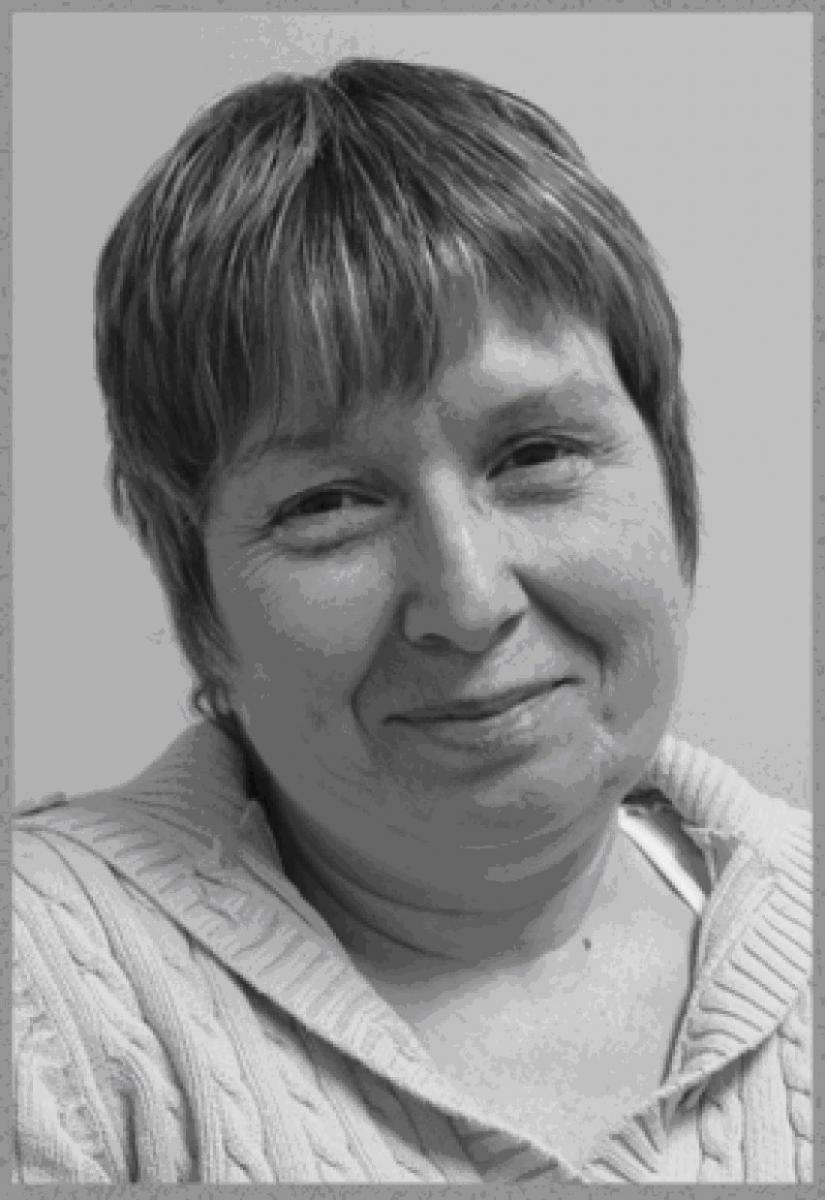
"It was devastating. It felt like my world was coming to an end."
Not long after she was married in 1991, Donna Vaughan began to suffer crippling headaches and bouts of dizziness. Doctors were at a loss to explain the cause.
With two young children and a husband at home, Donna relied on pills to dull the pain while sticking to her busy mom's routine, which included soccer practice and martial arts training.
Following a car accident in 2004, Donna's symptoms worsened dramatically. An MRI scan showed part of her brain, the cerebellum, was damaged and shrinking.
Genetic tests confirmed the diagnosis: Donna had a progressive, degenerative disease known as spinocerebellar ataxia. Apparently, she was born with it. The trauma of the car crash, doctors said, likely triggered acceleration of the disease's symptoms.
Donna is gradually losing her ability to speak and walk. There is no cure. Her main goal is staying independent for as long as she can. She's not giving up.
The 46-year-old from Stanbridge East in Quebec's Eastern Townships is staying active by pursuing her fourth-degree black belt in taekwondo. And she credits her ability to visualize out-of-body consciousness with preserving her sanity.
Donna tells StoryNet how she sees the disease as a test of her will to continue living life to its fullest, a test she is passing with flying colours.
Recorded in Bedford, Qc.
Produced by Dwane Wilkin
To listen, click here!
A Welder's Tale
Arnim Hector

"He said, 'You will have to go and learn a trade, because you are too small. You can't work no farm'."
Hector came from the Caribbean to help build Canada.
Raised by his grandparents, Arnim got his first job at 16 fixing dents in buses. But he was drawn to art of welding, and asked a colleague to introduce him to the torch.
By age 26 he was a master welder with 10 years' experience building oil tanks and drilling platforms for some of the biggest names in the business. Besides jobs in his birth country of Trinidad and Tobago, he had worked on construction crews in Venezuela's Orinoco River and in the U.S. Virgin Islands. Now a new adventure beckoned: Word was that Canada was in desperate need of skilled tradesmen.
He landed in Montreal in March, 1968 and was working at the Canadian Vickers ship-yard within a week. His wife and children soon followed him to his new home. Arnim watched with pride as his family flourished.
Over the last 45 years, Arnim's trade as a welder has taken him all over Quebec, with stints in the Maritimes, Ontario and the Albertan tar-sands. But Montreal remains his home.
StoryNet spoke with Arnim about some of his more memorable encounters and experiences.
Recorded in Montreal, Qc.
Produced by Dwane Wilkin
To listen, click here!
Animal Power
Dorothy Phillips

Dorothy Phillips delved into her ancestors' diaries for insight into the old rhythms of life around Gaspé Bay before the coming, in the early 1900s, of what she termed "the new way" and on up to the "fast way" that opened the second half of the 20th century.
For the better part of two hundred years, barnyard animals figured centrally in the lives of most Gaspesians and they loom endearingly in Phillips' 2010 collection of writings, entitled Twelve Stories of Farm Animals and An Account of How They and Their people Lived from the 1700s to the 1960s.
Born in 1926, Phillips is a retired school teacher and historian with deep roots in this part of Quebec, which her family has farmed since the 1860s. In this selection, she offers sketches of her homesteading forbears and their neighbors as they bend to chores cultivating fields, mending fences and minding livestock - often with hand-made tools.
Horses were indispensable members of each and every farming household prior to 1960 and caring for their well-being was of paramount importance. In summers, Phillips records, when the heavy ploughing and seeding was complete, the farmers at Gaspé Bay grazed their animals in the lush marshland that grew round the mouths of the Dartmouth, York and St. John Rivers.
By custom, the marshlands were recognized as the common property of all the Bay's landholders.
Narrated by Jane Allen.
Produced for StoryNet by Karen Molson.
To listen, click here!
Arnold's Mission
Edith Mills

"He could bandage a wound, set a broken bone, even draw a tooth with his forceps. So aside from preaching sermons, performing baptisms and marriages and funerals, he was much in demand.”
William Arnold emigrated to Canada from Ireland in the early 1800s and was ordained as an Anglican priest in 1826 by Bishop Stewart at Quebec City. At 22 he was sent to the Gaspé to serve as missionary, a calling that consisted not only in ministering to the faithful but also a fair bit of doctoring.
Arnold and his first wife, Maria O’Hara, had four daughters. In 1839 during a stint as army chaplain at St. John’s (now St. Jean-sur-Richelieu) Maria died and Arnold returned to Gaspé where he remarried. Here his youngest daughter and future biographer, Edith B. Mills, came into the world.
Remembrances of Gaspé was published in 1932 when roads allowing motorized transportation between coastal settlements and the larger centers upriver were just beginning to open. As a child, Mills had sometimes accompanied her father on his missionary travels by horse or boat and she witnessed the customs that were part and parcel of Gaspesian well into the 20th century. They are vividly described in this memoir, which she completed at age 90.
In this passage, Mills remembers the life and times of her missionary father; her childhood home, Spring Grove, her neighbors, her half-sisters and the much anticipated arrival of Bernier’s schooner from Quebec.
Narrated by Jean Goodier.
Produced for Storynet by Karen Molson
To listen, click here!
Baker's Dozen
Lorn & Winnie Turriff
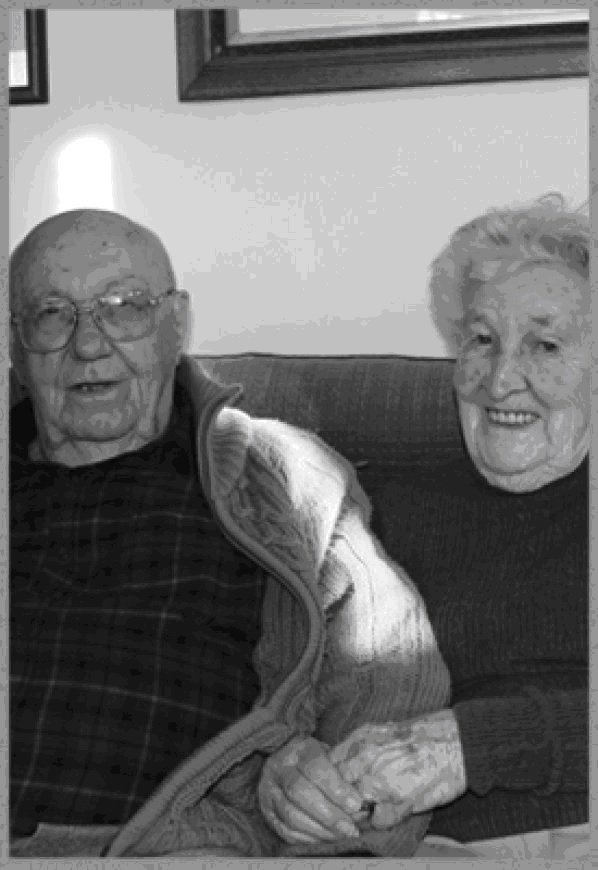
"When we first moved to Murdochville there were two sets of bunk-beds and a cot in one room."
Winnie Campbell was just 17 when she eloped with 21 year-old Lorn Turriff in 1938.
Little did she know that she would go on to bring 13 children into the world.
They'd driven from Métis Beach to the village of Matapedia and found a minister willing to marry them without asking too many questions.
Three months passed before Lorn finally told Winnie's parents what they'd done.
That was nearly 75 years ago.
Family gatherings are now rare and extraordinary affairs. As many as 35 Turriffs from all over Canada have been known to squeeze into the house at one time for a taste of Winnie's cooking.
It's getting so that it's hard to keep track of them. At last count, Winnie and Lorn could claim 36 great grandchildren.
It wasn't always easy keeping food on the table: during a stint at the copper mine in Murdochville, Lorn held down three jobs simultaneously.
The Turriffs sit down with StoryNet's Susan Woodfine to share their thoughts from a long, loving and healthy life.
Recorded in Métis-sur-Mer, Qc.
Produced by Dwane Wilkin
To listen, click here!
Big House
Evelyn Bufton Annett
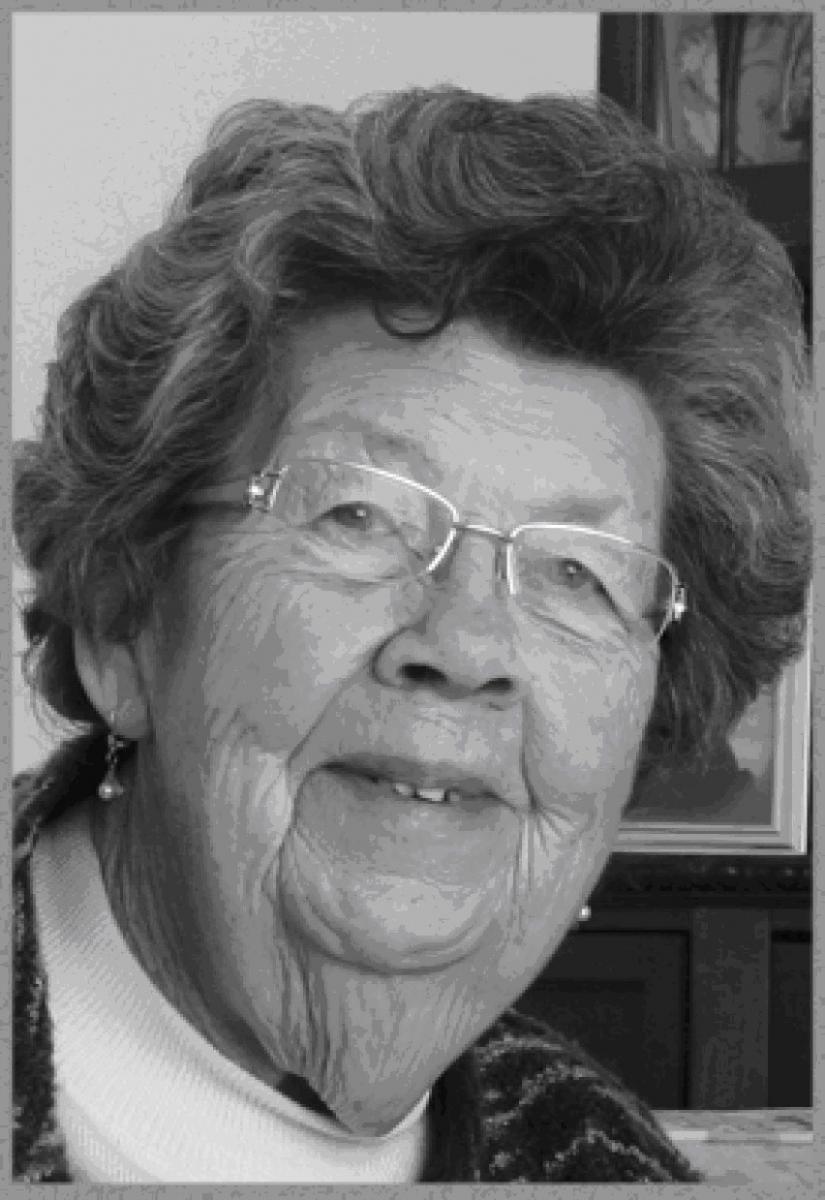
"Domestic service in those days was a good thing, in that you're housed, you're clothed and you're fed."
Cooks, butlers, maids and gardeners: Grand 19th-century households were not the exclusive privilege of Britain's leisure classes. They had their imitators in Canada, where a small group of ultra-rich families with ties to railway, banking, shipping and timber industries established themselves in Montreal's Golden Square Mile and were able to pursue an aristocratic lifestyle, à la Downton Abbey.
Robert and Elsie Reford headed up such a household on Drummond Street following their marriage in 1894. He was heir to his father's shipping company, and she, the daughter of an Ontario businessman who was married to the sister of the Canadian Pacific Railway's co-founder and first president, George Stephen.
Ernest Bufton came from humbler origins. Born in England, Bufton came to Canada in 1922 and devoted the better part of the next 50 years serving as butler to the Refords and their family.
In this conversation with the Refords' great-grandson Alexander, Bufton's daughter Evelyn shares her childhood memories of a world that centered on catering to the Refords' needs and wishes, both at their city residence and at Estevan Lodge, the property near Grand Métis that Elsie inherited from her uncle and whose grounds she famously set about transforming into today's internationally renowned Reford Gardens.
Recorded in Grand Métis, Qc.
Produced by Dwane Wilkin
To listen, click here!
Bucket List
Carolyn Taylor & Sam
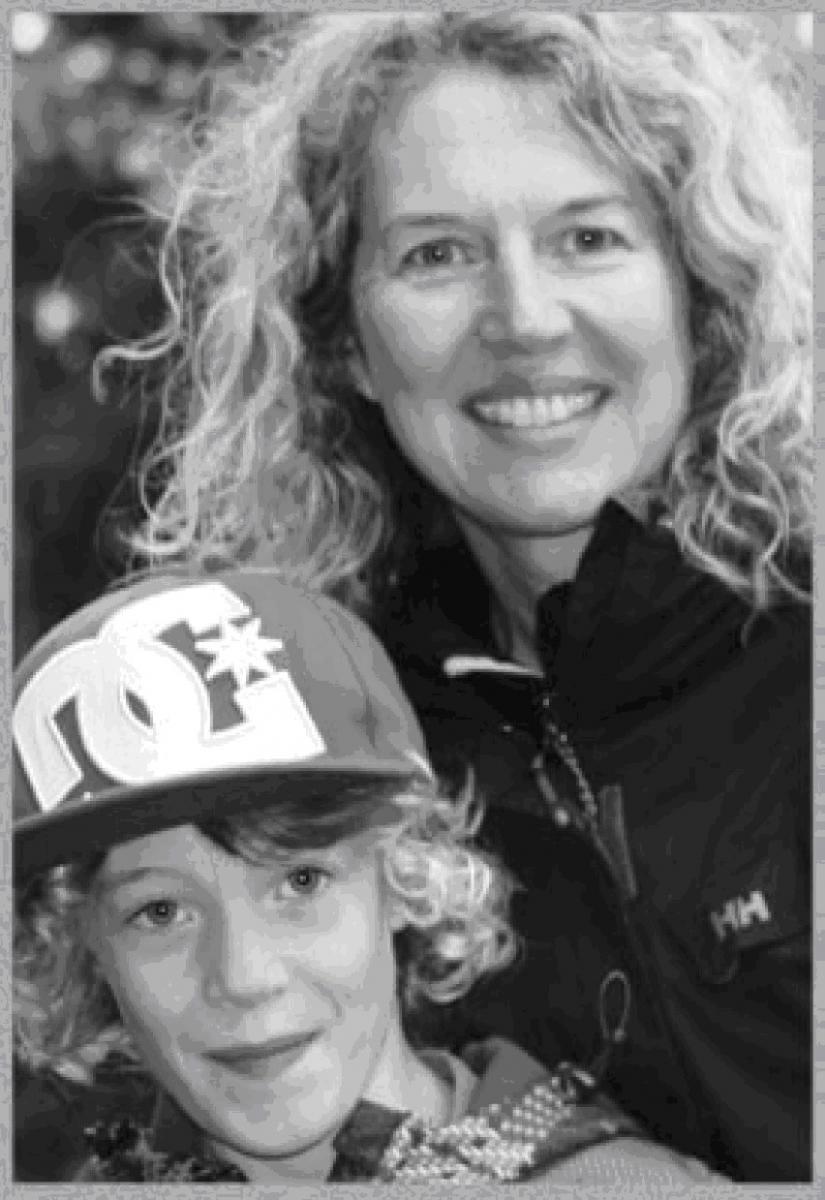
"My children are having that same childhood as I had."
Sam Bujold wouldn't trade his camp in the Canadian woods for a life in his mother's native England. And Carolyn Taylor is pleased to give her son the freedom to explore the natural world around their home in New Richmond on the Baie des Chaleurs.
When she was Sam's age she recalls spending whole days playing and exploring out of doors. Nowadays, her friends and family back home say that today's parents are just too afraid to let their children roam about the countryside unsupervised.
The National Trust in England has mounted a publicity campaign to get kids back outside, which includes a "Bucket List" of things children should do before the age of 12. These include climbing a tree, sliding in mud, catching fish and camping outdoors.
Carolyn talks with her son Sam about his own adventures and the tricky balance that
must be struck between protecting children from harm and encouraging them to experience all the marvelous things that the woods and streams and fields have to offer.
Recorded in New Richmond, Qc.
Produced by Dwane Wilkin
To listen, click here!
Coming North
Catherine Tactuk

Sixteen years ago Catherine Tactuk had no idea that she would marry the man from Canada she'd met online.
"This time he wasn't flying away from me. We were flying together."
Sixteen years ago Catherine Tactuk had no idea that she would marry the man from Canada she'd met online.
As it happened, her chance meeting in an internet chat room turned into a long-distance love affair with a man from Quebec.
In the fall of 2011, 39-year-old Catherine accompanied her new husband to Canada from her home in the Dominican Republic.
Starting a new life in a faraway country is always a challenge, but Catherine wasn't prepared for the culture shock that awaited her in a small rural town.
And then came winter.
StoryNet speaks to Catherine about her experience as a recent immigrant, what she misses about her home country and her determination to succeed in her new community.
Recorded in Bedford, Qc.
Produced by Dwane Wilkin
To listen, click here!
Cow Sense
David Gordon Crack

"When a bull would get pretty popular it was kind of nice if you had a bunch in the tank."
David Gordon Crack (Butch) has a knack for cattle breeding and he figured out a long time ago that he’d rather sell cows than milk them. Dealing and showmanship, it seemed, were in his blood. By the time he was old enough to attend school, he’d already started to learn the ropes at the Richmond County Fair, bedding down in the barns for the night with his father and their purebred Jerseys. For 53 years he’s gone to every edition of the Royal Winter Fair in Toronto but three.
Butch pedaled bull semen for years, running an artificial insemination business from the family farm in the Eastern Townships. Meanwhile he and his wife Phyllis raised two children and continued to build up their own prize-winning Holstein herd. Switching to Holsteins proved very lucrative, it turns out. The first young cow Butch bought cost $400 in 1967. At a sale in Italy just a few years ago a Crackholm Farm heifer fetched $40,000.
StoryNet spoke with Butch Crack about his life, his family and his business.
Recorded in Richmond, Qc.
Produced by Dwane Wilkin
To listen, click here!
Cream Days
Joy Nugent
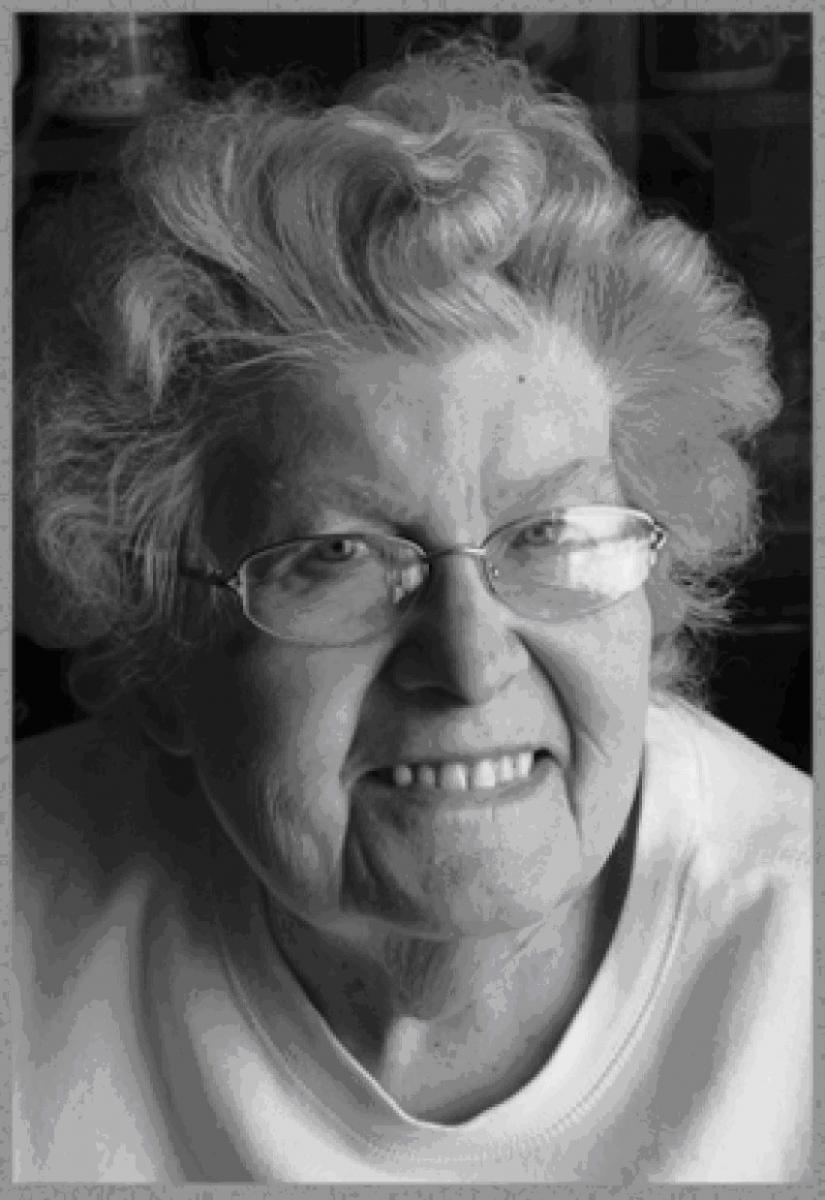
"I got off as far as I could, but still the two hubs of our wagons met, and our horse jumped, and the whipple-tree broke and she ran down the hill."
Joy Nugent still lives in the rambling farmhouse that her great-grandfather Thompson built in 1854, a mile or so from the village of Kinnear's Mills. She was born here in 1923 and has called it home for all but two of her 90 years.
Growing up on Tweedside Farm, Joy remembers that her family depended on horses to work the fields. They kept ten cows, some sheep and pigs and a few hens. Once a week her father George Thompson would drive into the nearest town, Thetford Mines, to sell surplus eggs.
Country schools didn't offer formal studies beyond Grade 8, so Joy arranged for room and board in the village for Grades 9 and 10. At 17, she spent the school year living in Thetford Mines to complete Grade 11.
Joy's dream was to train as a nurse, but she recalls how terrified her mother seemed by the prospect. Caring for sick people would expose her to all manner of deadly infection. Her mother told her a cautionary tale about a young cousin from Maple Grove who had cared for a man with galloping consumption and who'd soon come down with the disease herself, and died. Joy settled for a career in education, enrolling at teacher's college in Montreal.
Joy tells StoryNet about her memories of life at Tweedside Farm, from childhood through motherhood, including how she and her future husband Murray met one day by accident when she was driving a wagon load of cream to the butter factory.
Recorded in Kinnear's Mills, Qc.
Produced by Dwane Wilkin
To listen, click here!
Doctor Hot Rod
John McLaughlin

"These cars have got a lot of character and you can get pretty attached to them."
The little community of Venosta in the Gatineau River Valley is home to a hundred people or so, but the village has a big name in antique-car restoration: 51-year-old John McLaughlin.
Raised on a nearby dairy farm, John comes from a family with deep roots in the valley.
His grandfather ran the General Store and his great uncle owned a garage and welding shop, catering mostly to farmers and loggers.
For as long as he can remember, John’s felt passionately about old cars and trucks.
When he was 14 he landed a part-time job in an auto-body repair shop through a connection of his father’s. By the time he was 22 he was in business for himself.
John talked with StoryNet about the seemingly universal appeal of old vehicles, what to look for if you’re thinking of restoring one yourself, and some of his favourite rebuilds.
Produced by Dwane Wilkin
To listen, click here!
Dream Builders
Monika and Mary Nelis

"You have to do everything in your power to make it a good life, no matter what."
Monika Nelis-Dupont doesn’t feel that much different from any other 13-year-old, except that she needs help with things most kids her age take for granted.
Born with a rare genetic disorder that affects the way her bones are growing, the Grade 8 student at Massey-Vanier High School in Cowansville, Qc. uses a scooter to get around and hopes one day to be either a veterinarian or a photographer.
Monika was three when she was diagnosed with mucopolysacharide disease, or MPS, which is caused by the absence or malfunctioning of enzymes needed to break down certain carbohydrate molecules in her body. There is no cure and the only drug therapy known to slow the disease down can cost thousands of dollars per week to administer.
Monika and her mother Mary talk to StoryNet about coping with MPS, about Mary’s long struggle to get her daughter into the Aldurazyme drug-treatment program, and about life in a town where sidewalks and many businesses are simply out of bounds for people with special mobility needs.
Recorded in Bedford, Qc.
Produced by Dwane Wilkin
To listen, click here!
East End Streets
Kevin O'Donnell
 alt="kevin_odonnell.jpg" class="img-right caption" />
alt="kevin_odonnell.jpg" class="img-right caption" />
"I remember when he came home at night, his hands would be cracked and sometimes bleeding."
Montreal's East End district was booming in the years following the close of the Second World War.
Workers and tradesmen hired in the nearby shipyards and railroad shops supported thousands of growing families. Vacant apartments were scarce.
Though most East Enders spoke French, the district was also home to a large number of English-speaking families, including a community of mixed Irish and Scottish ancestry centered around St. Dominic's Parish.
Tom O'Donnell was a painter by trade whose job at Provincial Tramways was to help keep the company's fleet of passenger buses in good repair. It was hard, physical work that brought him into contact daily with noxious fumes and chemicals. But it put food on the table and paid the rent.
Kevin O'Donnell talks to StoryNet about growing up on St. Zotique and DeLormier streets in the 1940s and 50s, and his memory of the family's fateful first car trip together.
Recorded in Montreal, Qc.
Produced by Dwane Wilkin
To listen, click here!
Elizabeth's Story
Bev Hebert

"The first year I was here I wanted to wear a sign on me that says, I’m a tourist!"
Elizabeth Hebert touched a lot of people and packed a lot of living into her 14 years.
Elizabeth and her sister April, along with their parents Bev and Dave, moved to Quebec from British Columbia in 1988 so they could get to know their father’s side of the family. Adjusting to life in a strange new community proved difficult at first. Bev found herself struggling to learn French. April missed her old friends.
Then Elizabeth’s health took a turn for the worse.
Born with a severe case of Spina bifida in the 1970s, Elizabeth’s will to life defied all medical expectation. Not only did she survive, Elizabeth thrived.
Co-founder of the Spina Bifida Association of British Columbia and now providing homecare services in Quebec’s Eastern Townships, Bev Hebert speaks to StoryNet about coping with her eldest daughter’s disability, and the strength she found in reaching out to other parents of disabled children.
Recorded in Bedford, Qc.
Produced by Dwane Wilkin
To listen, click here!
Gloria's Wish
Mary Bercy
"We were walking with our garbage bags just trying to figure out where we were going to go."
Gloria Williamson was just 37 years old when she collapsed and died in her Cartierville apartment, leaving six children behind.
Mary Bercy was 14 at the time, a self-described tomboy who was more accustomed to fun and games than helping with the household chores. In the space of a moment her life was changed.
First, an aunt moved in to the Cartierville home, then authorities sent Mary's younger brother Moise to live with his grandmother the U.S. Her younger sister Marie-Coulombe ended up with a relative in another Montreal neighbourhood. Within a couple of years, Mary and three of her brothers were facing eviction.
That's when Gloria started coming to Mary in her dreams.
Mary speaks to StoryNet about her family's journey from grief to joy, rising to the challenge of taking care of one another, and fulfilling her mother's greatest wish.
Recorded in Montreal, Qc.
Produced by Dwane Wilkin
To listen, click here!
Hello Miss
Lillian Parkinson
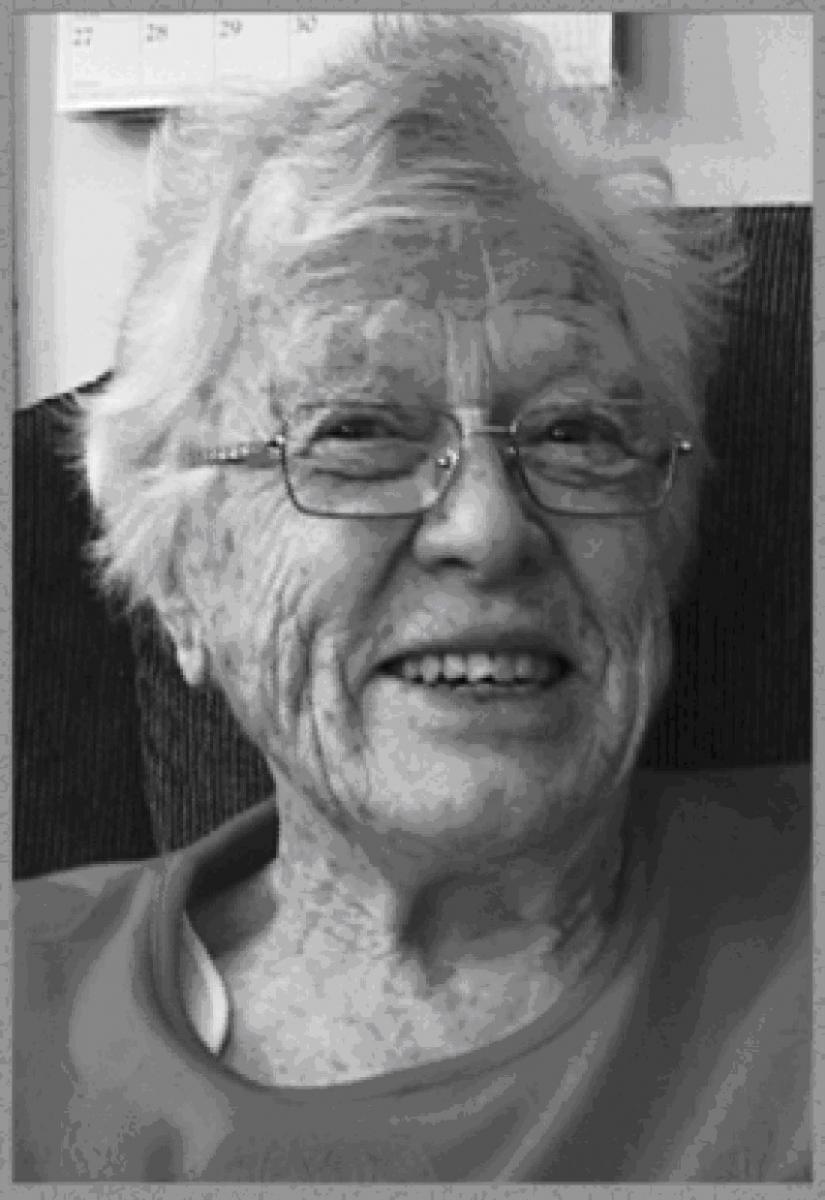
"Here was this poor little guy out on the playground with a yoke on him. I thought that was so funny. "
Lillian Parkinson was raised on a farm near Arundel in Quebec’s Laurentian Mountains, during the lean years of the Great Depression. From the day she started her first lessons at the village school she knew she wanted to be a teacher. After completing Grade 10, the highest level of education then offered in this part of the country, Lillian’s parents sent her to board in Ste. Anne-de-Bellevue, west of Montreal, where she enrolled in a teacher-training program at MacDonald College, graduating in 1942.
When Lillian returned north her first assignment was teaching farmer’s children living round the village of Mille-Isle. She remembers that most of them were boys, several from the same family. One of their favourite games at recess was pretending to be barnyard animals. In winter her students skied to school. Before long soon she was skiing, too.
Lillian was working at the Rawdon school the year she met Cliff. He had his own horse and buggy and he used to drive it to town on Saturday night. One night an old man came to the boarding house where Lillian lived and insisted on taking her and a friend to a dance at the golf course. Cliff had another girl on his arm when he arrived, but somehow he and Lillian ended up dancing together most of the evening. That’s how their courtship started.
Recorded in Rawdon, Qc.
Produced by Dwane Wilkin
To listen, click here!
Hooked
Lina Condo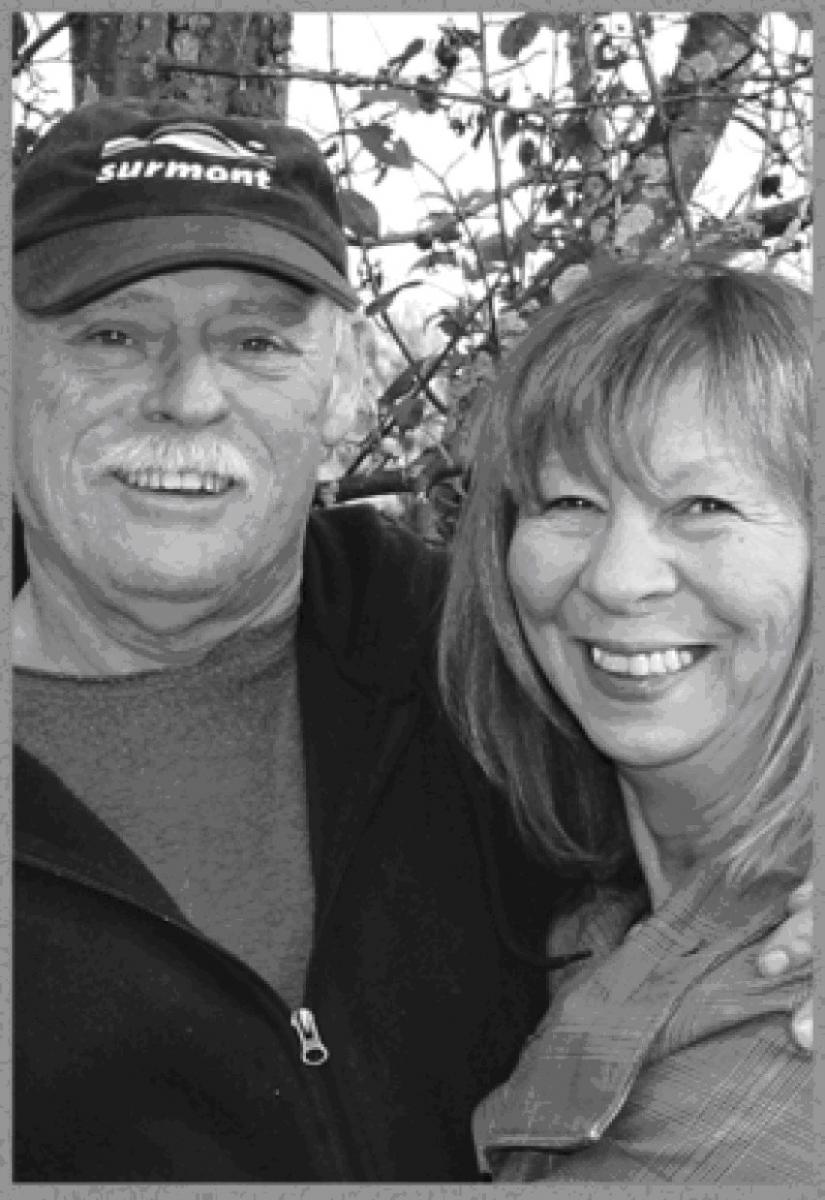
"How big of a salmon would it take to get tickets to see Pavarotti?"
Grand Cascapedia River figures among Canada's most celebrated Atlantic-salmon fishing destinations. It has also given Lina Condo and husband Terry Barter a unique, beautiful way of life.
Terry already had 15 years' experience on the water when he met Lina for the first time. She had signed up for river-guide training and found herself in Terry's canoe, learning how to maneuver the current with paddles and 12-foot-long poles.
Guiding back then was mostly a male preserve and Lina remembers a few clients who doubted she was up to the job. But they were wrong. She quickly earned the respect of her fellow guides and an enviable reputation among anglers who come each summer from all over the world to try their luck in the river's storied pools.
Before long, Lina and Terry were married, working together as partners in the boat and parents in the community.
Lina and Terry sat down with their daughter René to share a few memories, including a magical holiday in New York city, courtesy of a fishing guest who also happened to be the director of Carnegie Hall.
Recorded in New Richmond, Qc.
Produced by Dwane Wilkin
To listen, click here!
MacKenzie's Parish
Edna-May MacKenzie
"I remember being five years old and not being able to speak French. And boy, did we have to learn quick."
For decades, St. Dominic's Church parish served as the spiritual, educational and social hub for a vibrant community of English-speaking Catholics living in Montreal's East End.
Growing up Anglophone in a mostly French neighborhood was challenging, but today 49-year-old Edna-May MacKenzie can't imagine living anywhere else. She and her husband are raising their daughter Tiffany Rose in the very same house that her parents bought on Parthenais Street in 1963.
Edna-May's grandparents were among the Irish and Scottish immigrants who first began to settle in the neighborhood around the turn of the last century. In 1912 enough funds were raised to build a modest basement church, a school and a beautiful adjoining presbytery.
Nothing of these buildings remain now except memories and photographs.
After the church was sold in the 1970s services were held in a storefront church on Mont-Royal Avenue. Later, the parishioners shared space with another congregation. In 2008 the parish was closed.
Edna-May speaks to StoryNet about her father Malcolm, St. Dominic's last parish administrator and a prankster who recognized the value of having fun.
Recorded in Montreal, Qc.
Produced by Dwane Wilkin
To listen, click here!
Mill Rebel

"He was the type of person that didn't back down from anyone."
In recent years Canada has moved far from the vanguard of environmental stewardship.
Under the Conservative government public funding for scientific research and biological monitoring has been slashed and environmental review procedures relaxed to fast-track approval for industrial projects. Corporate polluters are rarely prosecuted. Renewable wind or solar energy schemes meet with stiff resistance. We’ve broken our international commitments to reduce global greenhouse-gas emissions.
We are so fixated, it seems, on getting ahead, we don’t care about the world our children will inherit.
Not Ken Willet. Not on his watch.
On April 16, 1979, Mr. Willet was working the night shift at a paper mill in New Richmond, Quebec, when his foreman ordered him to flush 80 tons of chemical pulp stock into a nearby river. He refused to obey, was sent home and later fined a day’s pay.
Word spread after Ken filed a grievance with Consolidated-Bathurst, the company that owned the mill and officials from the provincial environment ministry eventually forced the company to change its practices.
News that a lone paper worker had tried to stop his employer from polluting local waterways also made the rounds in Ottawa, where a young Liberal cabinet minister named John Roberts was determined to get environmental issues on the political radar.
Blowing the whistle on your employer is risky. Ken’s son Eugene can still recall how some fellow community members mocked her husband’s decision to dig in his heels. Canada’s environment minister saw things differently: Ken’s action was an inspiration that deserved to be honored.
And so on October 16, 1980, at a ceremony held in Toronto, John Roberts presented 43-year-old Ken Willett, husband and father of three young children, with the first annual Canadian environment award. In 1984, he received a plaque from the Canadian Papermakers Union, recognizing his contribution. Ken died on January 30, 2008.
Ken’s widow Peggy and son Eugene spoke to StoryNet, remembering Ken’s life, his love of nature and the day he spoke truth to power.
Recorded in New Richmond, Qc.
Produced by Dwane Wilkin
To listen, click here!
Mud Pie
John & Blanche Fallow
In the winter of 1944 a young farmer named John Fallow stopped by Robertson’s General Store to deliver a crate of eggs and fill a jar of molasses.
Blanche Campbell, the girl who served him, remembers the day she first laid eyes on the man she’d marry five years later. He was 22 and had been running the Fallow family farm near New Richmond since he was 16.
Blanche had a lifelong fear of animals, which she quickly learned to overcome.
"It took me a while to get used to the cows. And the horses, I was always petrified of the horses."
After they wed John went to work at Dimmick’s Garage and later had other jobs that took him away from the farm most days.
Blanche was in charge of the chores, housework, cooking and child-rearing; John tended the fields. They never had a lot of money, but their life was rich in countless other ways.
They farmed together for 61 years.
Recorded in New Richmond, Qc.
Produced by Dwane Wilkin
To listen, click here!
Queen of Ladysmith
Gerda & Hulda Erfle
"When you don't have a home, then you know that you can't stay in one place."
By the time she was in her mid-thirties, Hulda Erfle had lived through two world wars and survived the upheaval of her family's deportation from their ancestral farmland in Eastern Europe.
In the tiny Quebec village of Ladysmith, her home her since 1960, 104-year-old Hulda is simply known as Oma (German for Grandma), a tribute to her many years' service as a local community volunteer.
Oma's ancestors were farmers from Germany who had settled as colonists in the Russian-controlled territory of Bessarabia during the 19th century. She was just 10 years old when the region united with Romania, at the end of the First World War.
In the summer of 1940, just days following the surrender of France to Nazi Germany in World War II, the Soviet Union annexed and occupied Bessarabia. Against the background of the Hitler-Stalin pact, more than 93,000 Bessarabian Germans were resettled in the Reich.
The Erfles were given just 48 hours to pack up food, furniture and tools for the long journey by horse and wagon that would lead them to Nazi-occupied Poland, where they were put to work growing food for German soldiers.
Hulda and her daughter Gerda Bretlzaff remember these times and share the story of how the family came to start their new lives in Canada.
Recorded in Ladysmith, Qc.
Produced by Dwane Wilkin
To listen, click here!
Rare Breed
Sherman Young
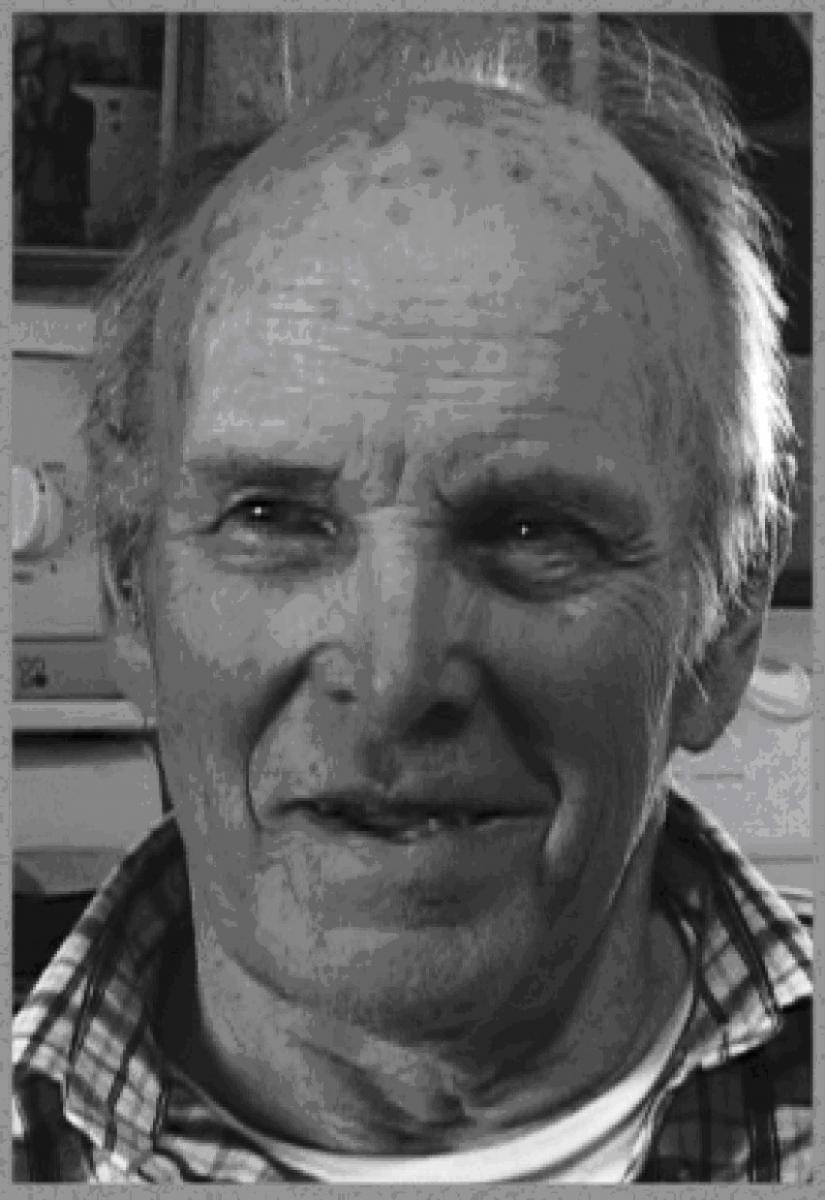
"When I was a kid I just loved Guernseys for some reason."
It was visiting Brome Fair as a youngster during the Great Depression when Sherman Young first caught a glimpse of his future in farming: a dairy herd made up of the loveliest purebred cows he’d ever laid eyes on.
Back then, Floyd Sanborn was the man to know in the Eastern Townships if you were interested in Guernseys. Sherman’s father had struggled to make a living on the family farm at the bottom of Pinnacle Mountain near Frelighsburgh. Sherman was determined to do better. He began by asking Floyd if he could lead Sanborn’s herd in the fair’s weekend parade.
Many years later Sherman had to say goodbye to his own prize-winning purebreds, as local dairies closed and the larger buyers from the bigger centers stopped coming to pick up his milk. Sherman reminisces about his life running a small mixed farm in Quebec at the end of the 20th century; including the chance he missed to own a share in what became a thriving ski resort in the nearby town of Sutton.
Recorded in Frelighsburg, Qc.
Produced by Dwane Wilkin
To listen, click here!
Rawdon Barn Fire
Beverly Prud'Homme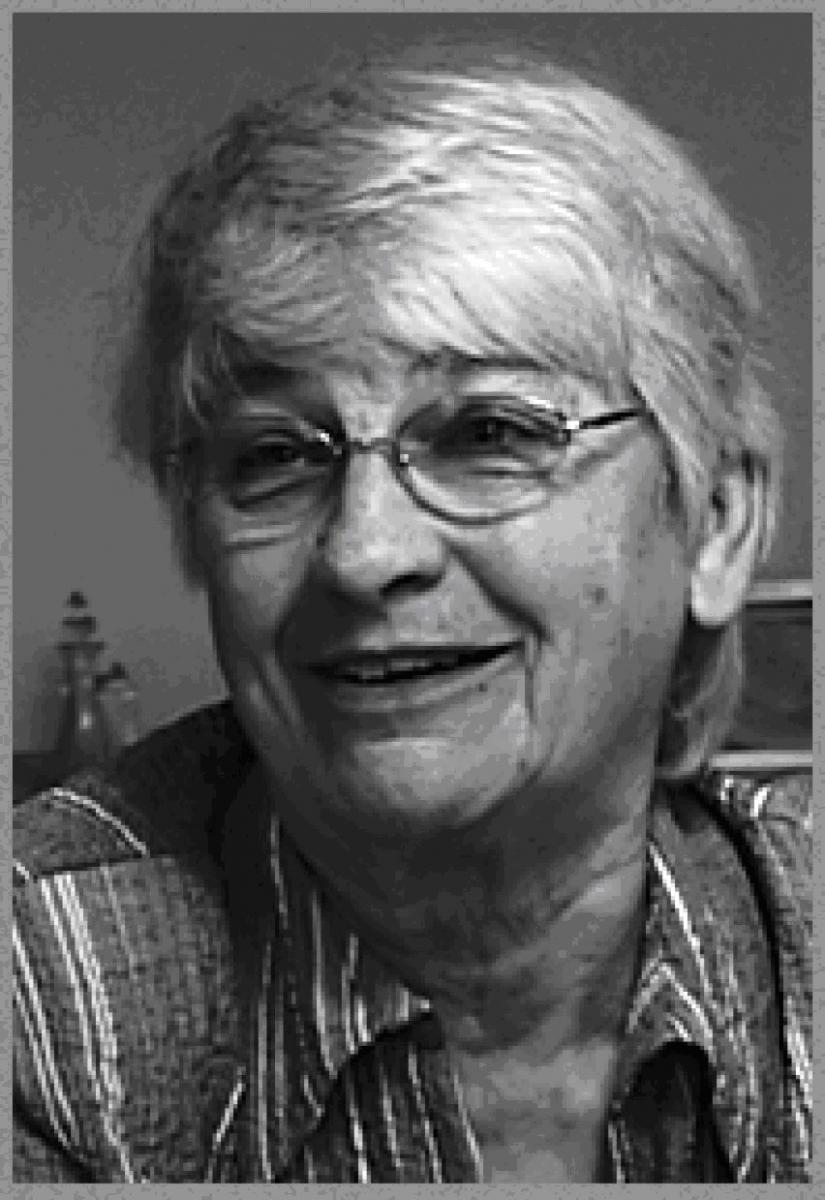
"There was one bolt of lightning and it went in one end of the barn and out the other."
Beverly Blagrave will never forget what it was like to grow up on the family farm near Rawdon. There were no electric lights or household appliances, and a good team of horses were as valuable as rain and sunlight for the crops of the field. Her father Orland’s gentle pair hauled the loads, pulled the machinery and delivered the milk. Beverly and her sister gathered berries in season, helped their mother with chores, and did their homework by lamp-light on the kitchen table after supper.
In the 1940s and 1950s the poor condition of the roads in this part of the Lanaudiere countryside meant travel by any kind of automobile was difficult, if not impossible, during much of the year. One thing you could count on, though, was a helping hand in a time of need. That time came for the Blagrave family one summer evening when a lightning storm touched off a devastating barn fire.
Recorded in Rawdon, Qc.
Produced by Dwane Wilkin
To listen, click here!
River Boat Man
Don McColgan
"I have somewhere in the neighborhood of 45 years down on the river there."
The seasonal ferry between Quyon, Quebec and Fitroy Harbour, Ontario will stop running as usual in November, 2012.
But this year marks the end of an era for Donald McColgan, whose family has been operating the Quyon Ferry since the 1950s.
Between 1969 and 1971 his father Edward “Slick” McColgan built two all-steel vessels equipped with diesel engines. These were to replace an old gasoline-powered paddle-wheel that had served communities on both sides of the Ottawa River since 1916.
Now these boats are being retired, too.
Don talks to StoryNet about the unexpected turn his life took after his father died prematurely in 1973, and remembers the special Pontiac farmer whose talent for mechanics helped him keep the ferries running.
Recorded in Quyon, Qc.
Produced by Dwane Wilkin
To listen, click here!
Sent Away
Beryl Tovim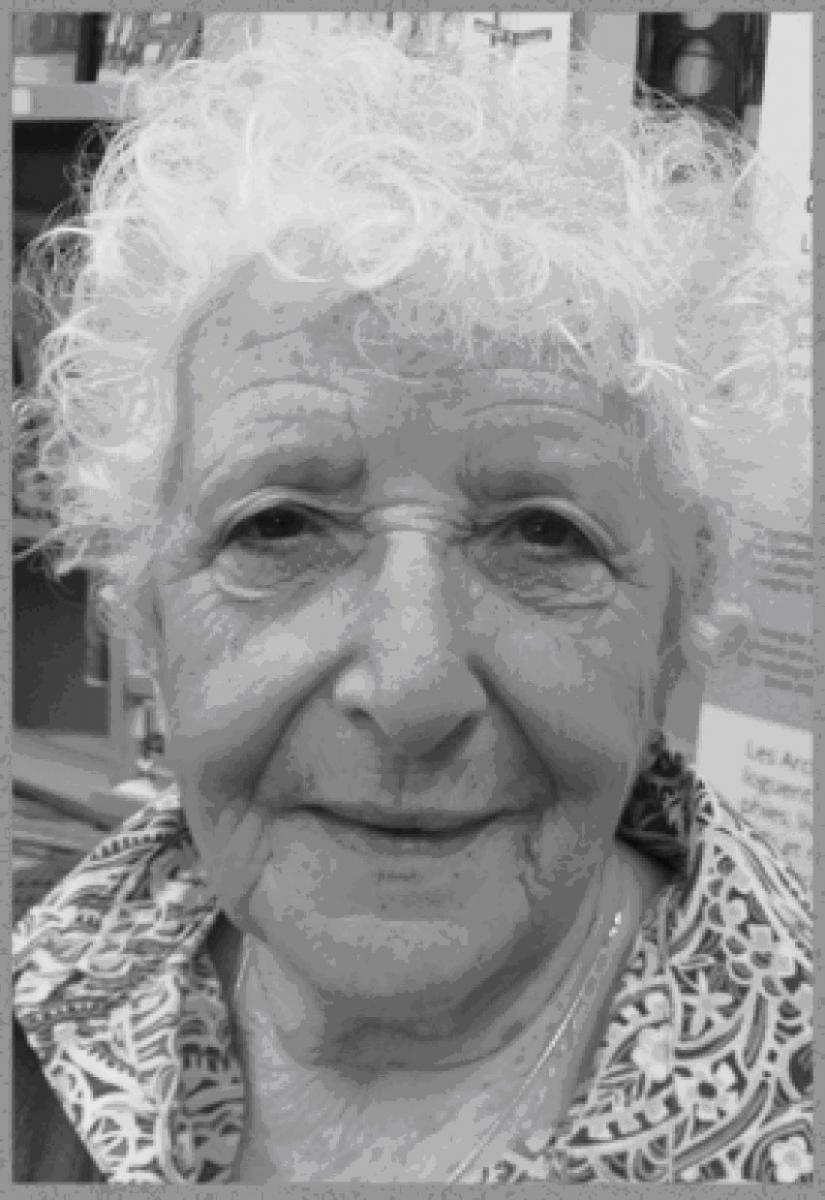
"I have this picture in my mind of, on the pavement, all the bodies laid out in sheets."
Beryl Tovim was separated from her family and sent to live in rural England during World War II when the German air force began its campaign of aerial civilian bombing known as the Blitz.
It was the first of many extraordinary experiences in a life's journey that has led her from England to Israel to Canada, and out from the emotional isolation of marital dysfunction, to freedom and self-confidence as a working single mom.
Born in London in 1932, Beryl now lives in Hemmingford, Quebec, where she is best known as the leading force behind the local community library.
As children, Beryl and her brothers were billeted in foster homes at various times as part of a program to reduce civilian casualties among people living in cities targeted by the Nazi bombing campaign.
During eight months of sustained attack, between September 1940 and May 1941, many parts of London were reduced to rubble. Beryl's father went to war work on the home front and the family's dry-cleaning business was abandoned.
Beryl shares her memories of the warning sirens, the bomb shelter in her grandmother's back garden, and of her eventual evacuation to the safety of the countryside, where her family was reunited after the war.
Recorded in Hemmingford, Qc.
Produced by Dwane Wilkin
To listen, click here!
Six Hundred Miles of Music
Audiodocumentary by Glenn Patterson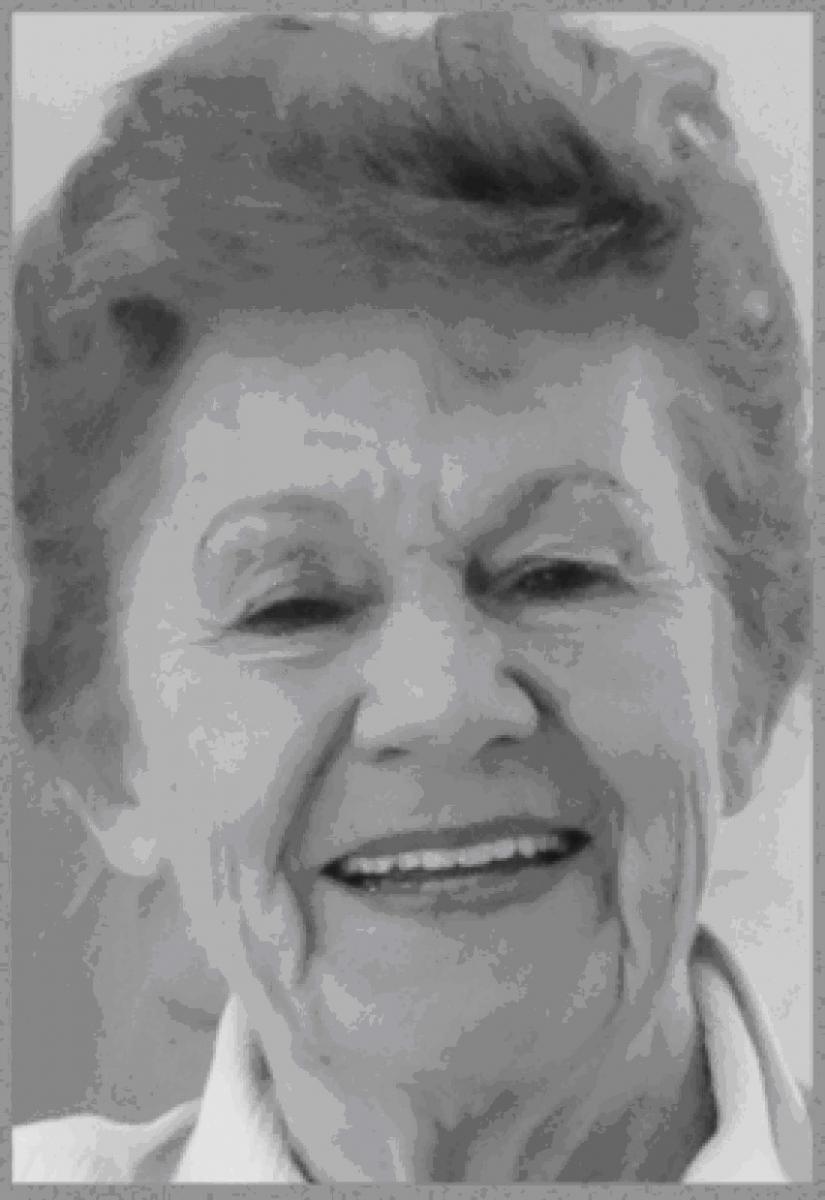
"My dad would always bring home a pail of cod heads and my mother would do them up. It made a real good meal and it didn't cost anything."
Brigid Drody is a guitar player who was born in 1937 to a musical family in Douglastown, Quebec near the tip of the Gaspé Penninsula. She has been surrounded by fiddlers her whole life, her powerful guitar accompaniment sought out by fiddlers throughout Quebec and Ontario.
Through Brigid's eyes and ears, this documentary explores the musical and personal bonds connecting three Quebec musicians, extending six hundred miles from the Gaspé Coast to the Chateauguay Valley.
Cyril Devouge was a fiddler born to a musical family in 1915, five miles from Douglastown in neighboring L’Anse-a-Brillant (Brilliant Cove). He had a unique and playful fiddle style which he described as a “Gaspé sound” learned from his father, a fisherman. During his life he worked in Quebec as a miner and heavy equipment mechanic. After leaving the Gaspé in the 1960s, he lived with his wife Edna and family in Montreal, Saint-Isidore, and Chateauguay, Quebec.
Neil MacKay was born in 1942 to a family of fiddlers and step dancers in the Chateauguay Valley around the village of Saint-Urbain Premier. He has played music for house parties and square dances for over five decades and has released four albums of fiddle music. He maintained the family farm while working as a printer for the Montreal Star and Montreal Gazette until 1995. Since then he has returned to farming full-time, working the same land in Saint-Urbain Premier that his ancestors cleared over two hundred years ago. When not farming, he is almost certainly playing the fiddle somewhere in the Chateauguay Valley.
Brigid Drody moved to the Chateauguay Valley in 1965 and currently lives in Howick, Quebec with her husband, Jimmy Miller.
The music in this documentary spans six decades and is played exclusively by the three musicians or their friends and families in the Gaspé and Chateauguay Valley, from the archival collections of Brian Morris, Brigid Drody, and Glenn Patterson.
To listen, click here!
Six Who Served
Kate LeBlanc
"He saw a German soldier standing at the side of the road pointing a gun at him."
As a teenager Kate Leblanc wondered why her father kept an old German sidearm on display in their home.
Roly LeBlanc was one of six brothers from Quebec's Gaspé region who had enlisted in Canada's Armed Forces during World War II. The LeBlanc boys personified an occupational phenomenon common in this part of the country, where it seems that for generations of young men, only four ways of life were imaginable: fishing, farming, lumbering or military service.
Roly chose the Air Force and was stationed in North Africa, eventually returning home to Canada, where he took up his father's butcher trade. Other brothers weren't so lucky.
In 1943 Kate's uncle Lloyd was killed when his plane was shot down over Holland.
Kate LeBlanc has a keen interest in the remarkable military heritage of Gaspesian communities and has served as president of the New Richmond branch of the Royal Canadian Legion.
She spoke to StoryNet about her father, her uncles and a memorable motorcycle ride in the North African desert nearly 70 years ago.
Recorded in New Richmond, Qc.
Produced by Dwane Wilkin
To listen, click here!
Starring As Steve
Steve Jones
"People forget that back in the 1950s you couldn't divorce someone for being an alcoholic."
Pearl Jones worried that her only child Steve was too shy for his own good.
So she set out to sign him up for as many activities as her Eaton's department-store salary would allow.
It didn't matter that he had little talent for the piano, let alone tap-dancing. It was tap-dancing, though, that brought the lifelong Montrealer a memorable flash of notoriety in the early 1960s following a couple of TV appearances on two popular kids' shows: Magic Tom and Johnny Jelly Bean.
Until her death in 1969 at age 54, Pearl Jones was also her son's best friend.
After graduating university in the late 1970s, Steve planned on a career in education. But by then the tide had turned on the baby boom and English schools in his home neighborhood of NDG and elsewhere in the city were already starting to downsize staff. Steve wound up in the taxi business, an occupation which he now regards as a special type of performance art.
Steve shares memories of his mother Pearl and reflects on social changes he's witnessed in one of Montreal's most diverse and vibrant neighborhoods.
Recorded in Westmount, Qc.
Produced by Dwane Wilkin
To listen, click here!
The Choice
Joan Dow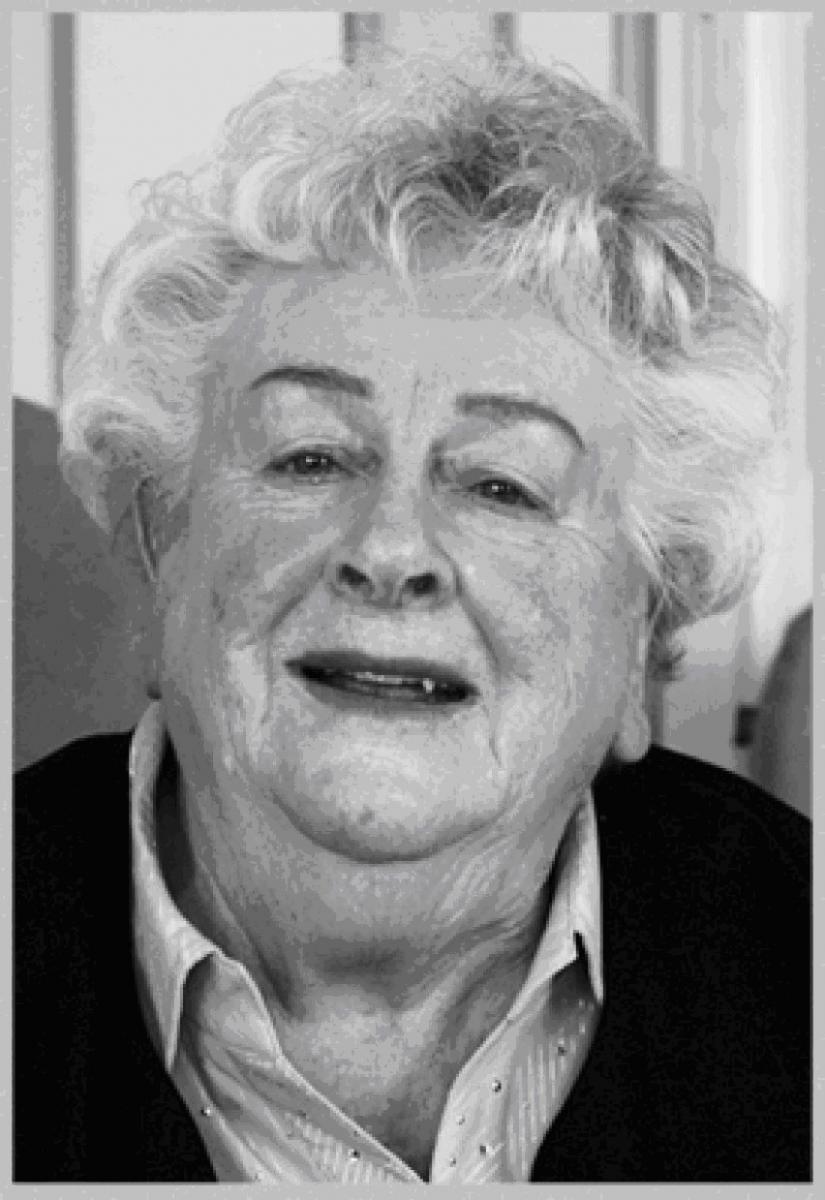
Growing up in Port Daniel West on the Baie des Chaleurs, Joan Bisson dreamed of becoming a doctor. Within a few months of graduating high school it looked as though her dream might even come true. In September 1947 she was working as a schoolteacher in the nearby village of Hopetown when a telegram came from McGill University. She’d won a scholarship to study there.
Still a teenager, Joan was faced with a fateful decision that shaped the course of her life to come and that of the entire Gaspesian community. But moving far away from family was not the only factor she took into account. A young veteran named Ivan Dow, recently returned from overseas, had stolen her heart. Montreal didn’t stand a chance. Within two years they were married and building a family of their own.
"He was a smart dresser and he was handsome and he had dark wavy hair and beautiful blue eyes."
Daughter Cynthia speaks to Joan about her mother’s decision to forego university, her memories of motherhood and the active life she’s led in community affairs up and down the Gaspe coast for more than half a century.
Recorded in New Richmond, Qc.
Produced by Dwane Wilkin
To listen, click here!
The Cutting Edge
Donald Healy
"Anybody with well-developed hand skills won’t ever spend very much money on sandpaper."
Working wood by hand requires time-tested skills and a few basic cutting tools.
Seventy-three year old Don Healy was introduced to his craft by a master cabinetmaker in the summer of 1965 and he’s been designing and building bespoke furniture ever since.
In an age when most cabinets, chairs and tables are machine-made and mass-produced, Don remains at the cutting edge of an ancient tradition, working out of a shop at his home in Quebec’s Eastern Townships.
Produced by Dwane Wilkin
To listen, click here!
The Green Divide
Cynthia and Joan Dow 
"You have to be careful of exactly who you who you listen to and what you believe when it comes to the environment."
Joan Bisson Dow is a household name in Eastern Quebec when it comes to volunteer action. As co-founder of the British Gaspesian Heritage Village in New Richmond, she was instrumental in reacquainting younger generations with the rich history of English-speaking communities along the Baie des Chaleurs coast.
These days jobs are hard to come by here and many young people have no choice but to leave in order to find work. Which is why she welcomes news that a new cement plant is to be built in Port Daniel, where she grew up.
Joan’s daughter Cynthia doesn’t share her mother’s enthusiasm. She’s part of an environmental watchdog group that questions the promoter’s claims about the cement plant’s impact on air and water quality.
What is the point of creating jobs if doing so degrades the very ecosystem on which life depends?
Two women. Two generations. And two views on the risk and benefit of industrial development in Gaspesian communities.
Recorded in New Richmond, Qc.
Produced by Dwane Wilkin
To listen, click here!
The Run
Alfred Bobinski
"There was one cow that produced quite a lot of milk. I used to lay down and my mother would squirt the milk directly into my mouth."
Door-to-door milk delivery was Joe Bobinski's business.
In the 1930s, the north end of Montreal's Park Avenue was mostly undeveloped fields. Joe Bobinski and his wife Mary kept a few cows on land where the Rockland Shopping Centre sits today, and began selling fresh milk to their Polish neighbors and other immigrant families who had begun settling the Park Extension district in the early 1900s.
Eighty-nine year old Alfred Bobinski, the third of four sons, was 16 in 1940 when new rules prohibiting the sale of raw milk forced his family to sell their livestock. They bought a small delivery truck and carried on as jobbers for a pasteurized milk factory and bottling plant.
It was Hitler's invasion of Poland that stirred Alfred to enlist in the Navy as a boy sailor in 1943. He would go on to serve in the engine room of the HMC Rivière-du-Loup, a corvette that escorted convoys of essential supplies from Canada to Great Britain.
He speaks to StoryNet about growing up in Park Ex, his memories of terrifying North Atlantic crossings and the German U-Boat that got away.
Recorded in Park Extension, Qc.
Produced by Dwane Wilkin
To listen, click here!
The Village Oven
Michael Hayes
"Back then they used whatever material they had on hand. We’re going to go with the sandstone."
From the time of the first French colonies in Canada, the smell of bread baking has brought people together.
So the folks at the Gaspesian British Heritage Village in New Richmond naturally sensed that a traditional Quebec-style outdoor bread oven would be a crowd-pleaser.
Michael Hayes was raised on a farm in nearby Shigawake, but he roamed around a lot in his younger years, learning the craft of stonemasonry along the way. Recently he returned to the Baie des Chaleurs, where he works as an educator.
He talked to StoryNet about the wood-fired brick oven he and his students built as part of the traditional crafts program held at the Heritage Village in the summer of 2012.
Recorded in New Richmond, Qc.
Produced by Dwane Wilkin
To listen, click here!
Twelve Days to Quebec
Ken Bouchard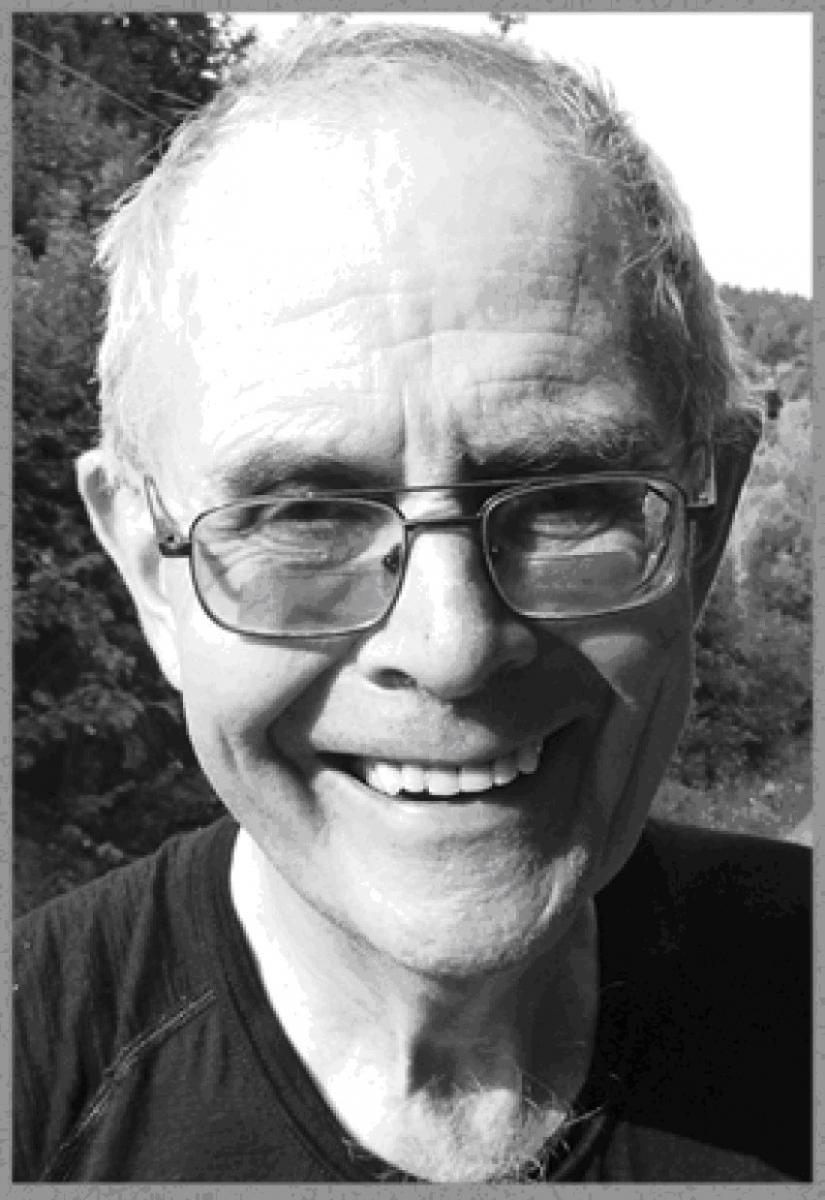
"When you’re driving on a four-lane highway you never see this."
Ken Bouchard’s father was killed in a plane crash when Ken was three years old, leaving his American-born mother Ruth Agnes MacDonald, to raise him on her own. Stints at summer camp and frequent trips to the Gatineau River Valley instilled in him a lifelong love of the outdoors rivaled only by his passion for history. After taking his retirement from Tourism Canada, Ken set out to navigate Canada’s historic waterways.
In 2008, Ken and a group of friends journeyed from Ottawa to Quebec City in a 17-foot long rowing skiff to join celebrations marking the 400th anniversary of Samuel de Champlain’s founding of the French colony. The 12-day voyage aboard the Ruth Agnes B. followed the Ottawa and St. Lawrence rivers, past Montreal, through the Lachine Rapids, across Lac St. Pierre and finally, into the harbor of the Old City.
Out in a small boat propelling yourself through such a magnificent current, Ken says you get a “totally different” feel for the St. Lawrence Valley. He’s planning to row to Kingston, Ontario in the summer of 2013 to mark the 200th anniversary of the building of the navy shipyards there.
Recorded in Wakefield, Qc.
Produced by Dwane Wilkin
To listen, click here!
View From Mount Loyal
Verna Asbil Negm
Verna Asbil’s parents weren’t rich, but there was always food to eat and a place at the table for unexpected guests.
In the 1930s and 1940s, eking a living from the poor soil north of Rawdon in Quebec’s Lanaudière region meant having a few cows and enough laying hens to keep neighboring cottagers in fresh cream and eggs.
In the winter, Verna’s father cut and hauled ice from the lake to sell to cottagers.
After a long career as a teacher, Verna returned to live in Mount Loyal in a cozy house overlooking the lake that was such a big part of the world in which she grew up. None of the old homesteads from her childhood remain, but the close-knit community of Mount Loyal has etched itself indelibly in Verna’s memories.
"It was hard, hard, hard work and my mother was in the fields as much as practically dad was too."
A one-room schoolhouse and a little wooden church were the places people gathered to learn and worship. And Sundays were made forever memorable by Verna’s grandmother relating the story of the murderer who lived down the road.
Recorded in Mount Loyal, Qc.
Produced by Dwane Wilkin
To listen, click here!
Wakeham Hall
Story by Ruth Miller Armstrong

Wakeham Hall was a symbol and centre of Anglophone community life in Gaspé Bay for more than a century, and the subject of this touching tribute by retired nurse and author Ruth Miller Armstrong.
In this passage, adapted from Armstrong’s book, Memories of Upper Wakeham, the story behind the little building, its function as a dance and reception hall, theatre, meeting place and election station is recounted.
Built in 1907, the community hall was demolished by municipal order in 2012 against the wishes of local heritage preservationists, who had hoped to find support to restore and repurpose the historic building.
Narrated by Jean Goodier.
Produced for StoryNet by Karen Molson.
To listen, click here!
Woman of the Cloth
Linda Spear
"Just the fact that I exist is a challenge to the present order of things."
In 2009 Linda Spear began her journey to become the Quebec’s first ordained female Roman Catholic priest.
This makes her a sinner in the eyes of the male Church hierarchy, though she considers herself a religious and social activist. She is not alone.
Over the last decade ten Canadians and 120 women world-wide have ignored the Vatican’s ban on female ordination and qualified to enter Catholic priesthood through a growing clerical-reform movement that began in Europe in 2002.
Linda tells StoryNet about her lifelong desire to serve as a priest, the support she’s received from other Christian faith groups in the community where she lives, and why she thinks conservative doctrine weakens the religious tradition she loves.
Recorded in Bedford, Qc.
Produced by Dwane Wilkin
To listen, click here!